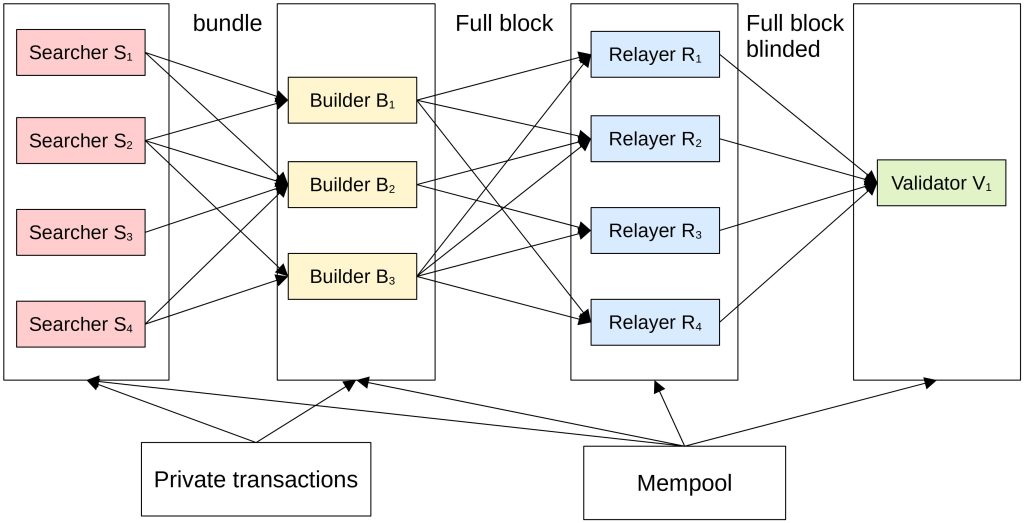Proposer Builder Separation in Ethereum (PBS)
Last Updated on 8. August 2023 by Mario Oettler
In this topic, we explain what proposer builder separation (PBS) in Ethereum is and why it is necessary. We also look into problems that come along with it.
Definition Proposer Builder Separation (PBS): Proposer Builder Separation means that block proposers and block builders are different entities. Block proposers publish the block in the network, while block builders collect and verify transactions and assemble blocks out of them.
In a proposer builder separation scheme, there can be different roles/entities:
Block proposers: Block proposers are validators that build and propose blocks. Building blocks means including transactions. Hence, the proposer can decide on the order of the transactions and if a certain transaction is included in its block or not. This allows the proposer to take advantage of it by getting DEX arbitrage profits or liquidation opportunities. We call this MEV (Miner Extractable Value or Maxima Extractable Value)
The problem here is that detecting these opportunities is not trivial and requires a high amount of fixed costs (for powerful servers simulating transactions, listening on the network, and researching for efficient MEV strategies). But only a few proposers have the knowledge and funds to compete here. This leads to centralization.
The solution is separating the proposer’s job to propagate a block to the Ethereum network from building the block.
The propagation is still done by the proposers, and the construction/building is done by the builders. However, block proposers still can build their own blocks without relying on the builders.
Builders: Builders collect transactions, order them to extract the MEV, and create a so-called exec-body for the proposer. There are multiple builders competing for inclusion. They do this by offering a share of the MEV to the proposer. The most lucrative offer is accepted.
Searchers: In some approaches, there is a third entity – searchers. Searchers receive transactions privately or take them from the public mempool. They bundle these transactions and submit them to a block builder.
Relayers: Another entity are relayers. They forward blocks from builders to block proposers.
If we keep it that simple, the proposer could steal the MEV by copying the sophisticated MEV strategy of the chosen builder without reimbursing the builder. The same holds for searchers and builders. The remedy is that builders only submit the header of their exec body to the proposer and offer a fee to the proposer to choose this block and propose it to the network. The proposer doesn’t learn anything about the exec body until it accepts the bid.

Effects of Proposer Builder Separation
- Avoid centralization
- Increase censorship resistance

 Register
Register Sign in
Sign in